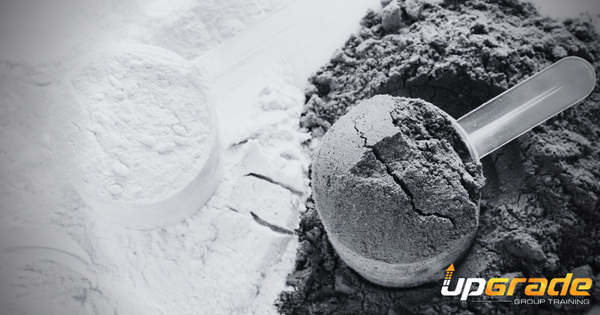Like anything in the world of fitness, there are all kinds of people telling you all kinds of things that you need to be doing to get healthy or stay healthy.
Run more. Run less. Lift more. Lift less. Take supplements. Don’t take supplements. Drink water all day. Just drink what you need when you feel thirsty. It can be confusing and the information is usually conflicting so you don’t know what to believe or what you should be doing every day for your health and fitness.
The question of how much protein to eat in a day is one of those questions that has a different answer depending on who you ask. If you’re here reading this, you no doubt did a search to find out the answer to the question. We did some research on this to see if there is any consensus. We’ll talk about the studies of two very reputable places that might know a thing or two, The Mayo Clinic and Harvard Medical School.
How Much Protein Per Day
The first thing you should know if you are reading this, and both Mayo and Harvard say the same thing, you are likely already getting enough protein in a day just through the regular course of your diet.
From Mayo Clinic:
Contrary to all the hype that everyone needs more protein, most people in the U.S. meet or exceed their needs. This is especially true for males ages 19–59. The Dietary Guidelines for Americans, 2020–2025 indicate that men in that age range are exceeding their protein recommendations, especially from meat, poultry and eggs.
And here’s what Harvard has to say about it:
For a relatively active adult, a daily protein intake to meet the RDA would supply as little as 10% of his or her total daily calories. In comparison, the average American consumes around 16% of his or her daily calories in the form of protein, from both plant and animal sources.
So, before you even start to worry about how much protein you are getting in a day, maybe take a closer look at your intake. You are likely already getting what you need every day when it comes to protein and you may not need to do anything more to supplement your protein intake.
If you still want to know for sure, here is what the super smart folks at the Mayo Clinic and Harvard have to say about how much you need.
From Mayo Clinic:
The recommended dietary allowance to prevent deficiency for an average sedentary adult is 0.8 grams per kilogram of body weight. For example, a person who weighs 165 pounds, or 75 kilograms, should consume 60 grams of protein per day.
Once you reach ages 40–50, sarcopenia, or losing muscle mass as you age, begins to set in. To prevent this and to maintain independence and quality of life, your protein needs increase to about 1–1.2 grams per kilogram or 75–90 grams per day for a 75-kilogram person.
People who exercise regularly also have higher needs, about 1.1–1.5 grams per kilogram. People who regularly lift weights or are training for a running or cycling event need 1.2–1.7 grams per kilogram. Excessive protein intake would be more than 2 grams per kilogram of body weight each day.
And the brainiacs at Harvard have this to say about daily protein intake:
To determine your daily protein intake, you can multiply your weight in pounds by 0.36, or use this online protein calculator. For a 50-year-old woman who weighs 140 pounds woman and who is sedentary (doesn’t exercise), that translates into 53 grams of protein a day.
Really, these two are not too far off from each other based on your age, gender, and level of activity. Harvard is actually more concerned that you take in the right kinds of protein during the day and that if you do eat more protein, you need to reduce your caloric intake in other areas.
It’s also important to consider the protein “package” — the fats, carbohydrates, vitamins, minerals, and other nutrients that invariably come along with protein. Aim for protein sources low in saturated fat and processed carbohydrates and rich in many nutrients.
One of the traps people often fall into when they start looking for protein answers, is hearing from internet gurus who tell you that the only way to build muscle is to take in lots and lots of protein.
The Mayo Clinic disagrees with those internet gurus.
Although adequate protein throughout the day is necessary, extra strength training is what leads to muscle growth — not extra protein intake. You can’t build muscle without the exercise to go with it.
The body can’t store protein, so once needs are met, any extra is used for energy or stored as fat. Excess calories from any source will be stored as fat in the body.
Extra protein intake also can lead to elevated blood lipids and heart disease because many high-protein foods you eat are high in total and saturated fat. Extra protein intake, which can tax the kidneys, poses an additional risk to people predisposed to kidney disease.
Taking in too much protein is actually going to lead to weight gain, and it can be dangerous to your health. You need to be very careful with protein intake and make sure you are following legitimate professionals and not the latest fad or the person with the most TikTok followers.
The short of it is this. Don’t go crazy with protein. You are likely already getting enough protein in your diet just through the regular course of what you eat during the day. Unless you are training for a marathon or work on a crab boat, you probably are not at a high enough activity level that would necessitate a massive increase in protein.
Be safe and be smart and if you have any questions, talk to your doctor, not YouTube. If you have questions about exercise and fitness, that’s in our lane and we’re here to answer those questions.


